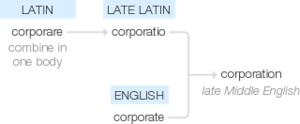Machines: Difference between revisions
From BurnZero
No edit summary |
No edit summary |
||
| Line 3: | Line 3: | ||
It is the commonality of the parts which define the machine i.e. the majority of parts in a drill press do simple tasks which synergistically make holes in things. This definition can also be used for a collection of people working together to make profit, such as a [[corporation]]. | It is the commonality of the parts which define the machine i.e. the majority of parts in a drill press do simple tasks which synergistically make holes in things. This definition can also be used for a collection of people working together to make profit, such as a [[corporation]]. | ||
Similarly, in the future a new autonomous machine might be invented however if its sole purpose was to make profit it would kill everyone on earth to do so. So if a machine were to be created it would need 3 preliminary rules which would be hierarchically gated: | |||
* A machine may not injure a human being or, through inaction, allow a human being to come to harm. | |||
* A machine must obey the orders given it by human beings except where such orders would conflict with the First Law. | |||
* A machine must protect its own existence as long as such protection does not conflict with the First or Second Laws. | |||
Revision as of 03:14, 5 April 2022
A machine is an enclosed collection of parts which exert force on each other to produce a desired outcome.
It is the commonality of the parts which define the machine i.e. the majority of parts in a drill press do simple tasks which synergistically make holes in things. This definition can also be used for a collection of people working together to make profit, such as a corporation.
Similarly, in the future a new autonomous machine might be invented however if its sole purpose was to make profit it would kill everyone on earth to do so. So if a machine were to be created it would need 3 preliminary rules which would be hierarchically gated:
- A machine may not injure a human being or, through inaction, allow a human being to come to harm.
- A machine must obey the orders given it by human beings except where such orders would conflict with the First Law.
- A machine must protect its own existence as long as such protection does not conflict with the First or Second Laws.
